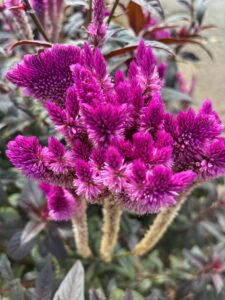No Ka ‘Oi Health: September is Healthy Aging Month
In September, we get to honor our kupuna during Healthy Aging Month. While older adults are at increased risk of chronic diseases, such as heart disease, diabetes, arthritis, cancer, and dementia, there are many healthy choices seniors can make to help prevent illness and live longer, more independently, and with higher quality of life.
Stay active–Exercise helps improve how long we live and our quality of life. More specifically, exercise helps reduce stress, anxiety, and feelings of depression, reduces risk for certain diseases, improves balance, lowers risk of falls, and improves sleep. Even if exercise has become more challenging with age, it’s important to do what you can, even if you start with just a few minutes a day. Supports, such as walking sticks, help reduce joint pain and help with balance. Swimming, water exercise, and chair yoga are good options for people with joint or balance challenges. Mostly, do activities that you enjoy! Adopting a dog could be a great motivator to walk as well as a great addition to the family. If exercise is new to you, make sure to discuss healthy and safe exercise options with your doctor.
Eat healthy foods–Eating healthy foods supports your body and brain by providing essential nutrients. Healthy foods also support muscles and strengthen bones, which can help improve balance and independence. Include a variety of fresh fruits and vegetables, whole grains, healthy fats, and lean proteins to support your body, brain, immune system, and lower your risk for many diseases.
Quality of sleep–Older adults need between 7-9 hours of sleep each night. However, older adults may not get enough sleep, which can lead to irritability, memory problems, feeling depressed, and increased risk for falls and injuries. Here are some tips for getting better sleep:
¯ Follow a regular sleep schedule, going to sleep and getting up at the same time.
¯ Avoid napping in the late afternoon or evening.
¯ Take time to relax before bedtime. Read a book, listen to mellow music, or take a warm bath.
¯ Avoid watching TV and using your computer or smart phone before bed.
¯ Avoid eating, drinking caffeine, and drinking alcohol for a few hours before bedtime.
¯ Make sure your bedroom temperature and mattress are comfortable.
Manage stress–While everyone at any age experiences stress, the effects of stress can be greater in older adults. Stress can make symptoms of chronic conditions worse and can contribute to the onset of new conditions. Stress can even speed up the aging process itself. Hence, learning effective stress management skills is important for older adults’ mental and physical health.
¯ When possible, remove the source of stress.
¯ Move your body in ways you enjoy.
¯ Eat healthy foods.
¯ Stay hydrated by drinking plenty of water.
¯ Get enough sleep.
¯ Take time to meditate. Breathe deep, visualize positive outcomes, and say to yourself positive affirmations, such as “I am enough” and “I have faith in positive outcomes.”
Visit doctors regularly–It’s important for older adults to have regular health exams and screenings, to catch health concerns early and get treated effectively. Older adults should check in with their doctors annually, and possibly more often. It’s also important to reach out to doctors immediately if pain or new symptoms appear.
Be social–For many reasons, as people age, they often find themselves spending more time alone. Social isolation and loneliness are associated with higher risk for depression, heart disease, and cognitive decline. To reduce isolation and loneliness, schedule regular phone calls or in-person meet-ups for coffee, a meal, or a walk with friends and family members. Try joining a club, community group, or exercise group to meet people with similar interests.
Laugh often–Laughter is the best medicine! Laughter stimulates many organs, activates and relieves your stress response, and soothes tension. Long term, laughter can enhance the immune system, relieve pain, and improve mood. Make time every day for laughter, whether it’s with friends or by yourself.
There you have it! Happy Healthy Aging Month. Try some of these tips regardless of your age, and if you have an older relative or friend, encourage them to try out one or two of these tips as well.
n Kristin Mills is a public health educator with the state Department of Health’s Maui District Health Office. No Ka ‘Oi Health is published on the fourth Thursday of every month.



